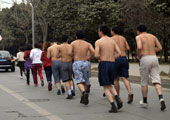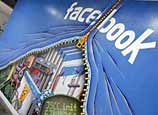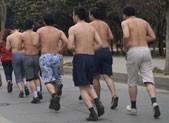
It has set a target of opening 800 new cafes by 2015 in the Chinese mainland alone, where it will have 1,500 outlets.
"When we look back at the last 13 years since we entered the market, we see the Chinese found ways to embrace the Starbucks experience. They have made Starbucks part of their daily ritual, appreciating high-quality espresso (for example) and also coming to appreciate a third-place environment," Culver said.
The "third-place environment", one that is neither work nor home, is new to Chinese people - traditionally, treating guests to tea in one's home is the most common and safe means of social interaction.
Nowadays more people like to meet their friends or business partners in a coffee house, which provides a cozy setting with soft couches and warm light, and also doesn't have the noise associated with Chinese teahouses.
Culver joined Starbucks in August 2002 as vice-president and general manager of food services, responsible for leading sales, marketing and operations.
His focus on building brand awareness in traditional food service venues included positioning the Starbucks brand with slogans such as "We proudly brew Seattle's best coffee".
Culver and his team worked to increase the presence of the Starbucks brand with key US customers and to ensure that Starbucks' quality standards were maintained in more than 15,000 outlets. He was later promoted to president of global consumer products and food services, leading the strategy to support Starbucks growth and expansion of product offerings worldwide, including packaged coffee, ready-to-drink coffee, ice cream and teas and drinks.
In late 2011, when Culver was about to take the position as president of Starbucks Coffee China and Asia-Pacific, he was expecting "China to become Starbucks' second home market outside the United States".
These days, as Starbucks holds the leading position in China's fast-growing coffee outlet market, his ambition looks like it will soon be realized.
The number of cafes in China doubled from 15,898 in 2007 to 31,783 in 2012. In contrast, the nation's teahouses grew by only 4 percent to 50,984 during the same period, according to a recent report from UK-based research company Mintel Group Ltd.
Coffee chains only started appearing in the mainland in the late 1990s but have since grown rapidly.
Teahouses are generally viewed as leisurely places where the elderly gather to chat and play cards, with their outdated interiors and management style deterring younger customers.
The market value of the nation's cafes and teahouses rose from 31.8 billion yuan ($5.05 billion) in 2007 to 71.6 billion yuan in 2012. Mintel predicts this will rise to 121.69 billion yuan between 2012 and 2017.


















 Employees run half-naked for not meeting sales quotas
Employees run half-naked for not meeting sales quotas


![]()
